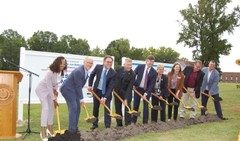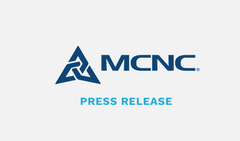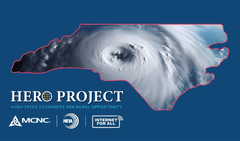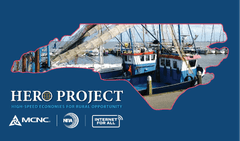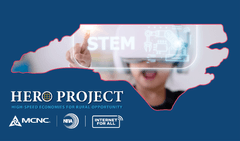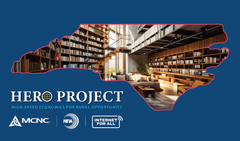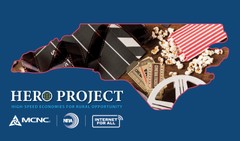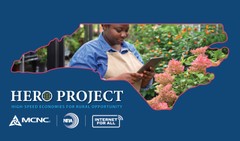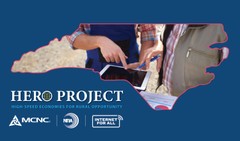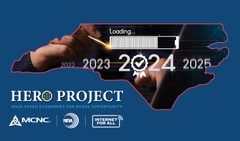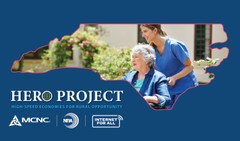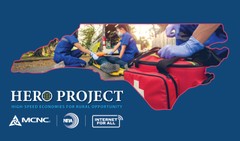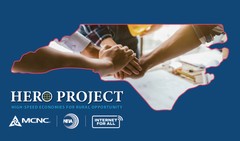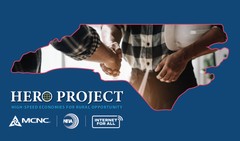HERO Project: Broadband fuels culture, creativity and quality of life in North Carolina
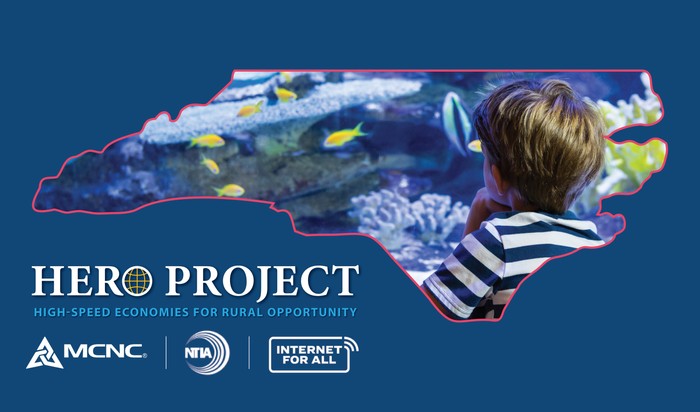
North Carolina is home to some amazing arts and culture, and broadband access is incredibly important for museums, aquariums, zoos, botanical gardens, and other community anchors institutions throughout the state. MCNC understands that access to high-speed internet can be the universal catalyst that lifts communities out of poverty and puts access to health care, education and social services within the reach of all. Our HERO (High Speed Economies for Rural Opportunities) Project aims to ensure every community has what it needs to fully participate in today’s society.
Welcome to North Carolina
There isn't a definitive source for the exact number of cultural institutions located in North Carolina, but it is estimated at more than 3,400. There are roughly about 250 museums, more than 20 botanical gardens, and three major public aquariums operated by the North Carolina Aquariums, which are located at Fort Fisher in Kure Beach, on Roanoke Island on the Outer Banks, and at Pine Knoll Shores. Finally, there are more than 75 local arts councils that support local communities. MCNC currently serves Marbles Kids Museum, the N.C. Museum of Natural Sciences, and all three of the aforementioned aquariums – see our Interactive Community Map.
Each of these cultural institutions have a significant impact on the state's economy. They are substantial employers, supporting thousands of jobs, and generate billions of dollars in revenue annually. They attract millions of tourists from within and outside the state, boosting local economies in other ways including spending money on hotels, restaurants, transportation, and shopping. Studies also suggest that strong arts communities correlate with higher property values. This can attract new residents and businesses, further strengthening the tax base and economic development.
Driving Opportunities through Digital Transformation
Full participation in today's society requires the ability to access and use digital content and technologies. Broadband is vital for cultural institutions to thrive in the digital age. It allows them to connect with a wider audience, preserve cultural heritage, offer enriched educational experiences, collaborate more effectively, and contribute to economic development.
Consider the following …
Outreach and Engagement: Broadband allows cultural institutions to reach a wider audience through virtual exhibits, online collections, educational resources, and live streaming of events. This expands their reach beyond geographic limitations and fosters engagement with people who might not physically be able to visit.
Preservation and Access: Broadband facilitates the digitization of vast collections, preserving cultural heritage and making it accessible to researchers and the public. High-resolution images, 3D scans of artifacts, and online archives require significant bandwidth for storage and transmission.
Educational Programs: Broadband enables cultural institutions to offer interactive educational programs online. Virtual tours, educational videos, and online courses can enrich the learning experience for students and the general public.
Collaboration and Research: Broadband fosters collaboration between cultural institutions across regions and even internationally. Researchers can share data and participate in joint projects more efficiently with high-speed internet.
Economic Development: Cultural institutions are economic drivers that attract local investment.
Building a Highway of Innovation
Technology has been the driving force of North Carolina’s economy for the last 50 years, and it will continue to be for the next 50. Investing in broadband infrastructure is an investment in the future, and there are still many areas of the state where citizens do not have access to it.
Cultural institutions contribute to a community's vibrancy and quality of life. MCNC’s HERO Project is another step forward to support our cultural institutions so North Carolina continues to foster a thriving creative economy that benefits both residents and the state's overall economic well-being.
Construction of MCNC’s HERO Project begins this summer with completion planned for June 2025.
